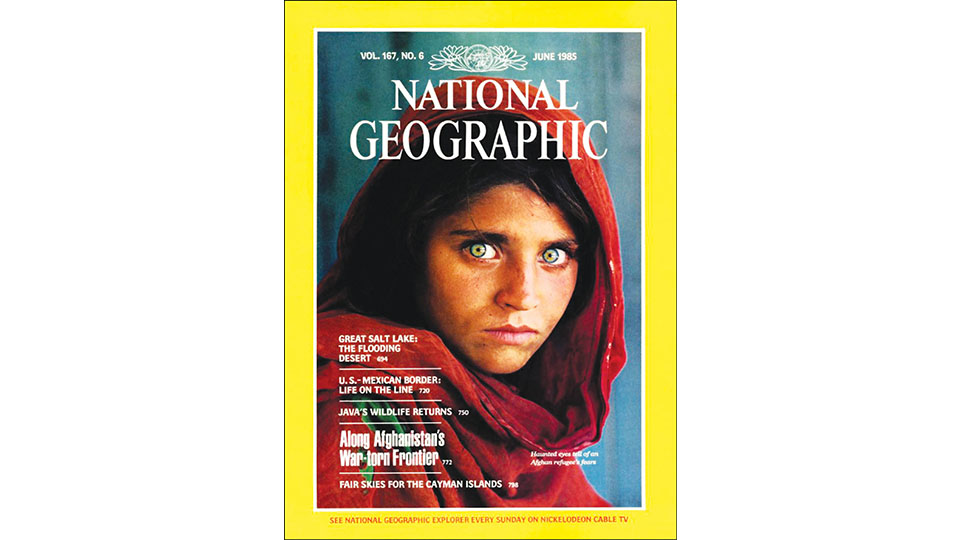By Dr. K. Javeed Nayeem, MD
The coming new year is bound to be one with a very sad beginning, at least for me. Although there are bound to be millions like me across the world to share my grief, this will in no way lessen my own pain and angst. I say this because the final word is out that the ‘National Geographic’ magazine, one of the most prestigious and long-standing magazines of its kind, would be shutting shop, as far as its print edition is concerned.
This very unexpected decision has been taken by its publishers, Walt Disney Inc, because in these days of the internet, it has just no takers, whose subscriptions alone can keep it alive and circulating across the world.
The American magazine, which remains among the most read, not just in the US but across the world, has struggled in the digital era to command the kind of resources that fuelled the deep and extensively researched kind of reporting it was most famously known for. The iconic, bright-yellow-bordered print publication, will no longer be sold on news-stands starting next year.
Although it isn’t the end of National Geographic entirely, it certainly seems like a big step in that direction. The illustrious and certainly most well-illustrated magazine has laid off all of its last remaining staff writers and its digital version will now be spoon-fed by voluntary free-lance writers and contributors.
The 135-year-old iconic magazine, covering science, exploration, the natural world, and culture, no longer has any regular writers on its staff. Others impacted by the latest cost-cutting measures include several photographers, as contracts which enabled them to spend months in the field, producing the publication’s iconic images, have now been curtailed.
Sadly, this turn of events is a very clear indication that if we as a society choose to stop paying for news or entertainment, that we relish, it will have very far-reaching consequences in our lives. To my knowledge, the National Geographic is one of the two iconic American magazines that were instantly recognisable just by the colour of the border on their covers, even from a distance. While Time magazine was one with its red border, the National Geographic has had its signature yellow one. What we’ll get to read henceforth will only be the electronic version which I am told will come with a blue border, although we can never say how long this pleasure and privilege is going to last.
Very reliable sources say that the shutting down of the print version is just the beginning of a complete cessation of its publication which is just around the corner. So, I feel that this perceived reassurance is only a cushioning of the final jolt to come!
But I can say one thing for sure. The joy of reading the National Geographic will never be the same and I say this for two reasons. One, with all the funding gone and with almost no one to do the photo assignments and well researched reporting, this virtual and intangible version can only turn out to be at best a very pale and anaemic imposter of its past avatar. Secondly, if you are like me, you’ll certainly not relish reading something on the screen which you cannot hold close to your nose and smell it too at will, as you read it and your not being able to tuck it under your pillow, when you’re overcome by sleep will also count immensely!
The National Geographic magazine had its origins in the National Geographic Society in Washington, founded in 1888 by a team of thirty-three scientists, researchers and explorers, including Alexander Graham Bell. At first the magazine was a scholarly journal sent only to society members with the first copy published in September 1888, eight months after the Society’s founding. Then it did not have the photographs, that set it apart in the years to come. Photographs started appearing only in 1905 and by the 1930s, it had reached a whopping one million subscribers.
In its heyday in the 1980s, the magazine had over twelve million subscribers in the US, and a lot many more overseas. But it could not hold on for much longer and the past one decade turned out to be a death knell for it too, like the way it was for most other print magazines.
Now, going back to my own sorrow, it stems from the fact that I have been a great lover of the National Geographic even from time before I could actually read anything! But from the time I was in high school I have leafed through or read in bits and pieces, every issue of the magazine I could lay my hands on, depending on what I could relish or digest. And, I can say that I could lay my hands on a good many of them; bought, begged, borrowed but thankfully not stolen! Along with the Reader’s Digest, the National Geographic was my family’s favourite reading material and so the two used to always be a part of our household.
Being the book-lovers that they both were, my parents would never refuse to buy me or my siblings, any of the books that we would pick up at any of the bookshops we visited. And visiting bookshops was always the first thing that we did, wherever we went. That is why in our house, we have books that remind us of the places we have visited and forgotten, because they have the dates and places written on them!
In the year 1966, when we moved into the house where we have been staying since then, a neighbour who was a watch repairer wanted to sell away their family’s collection of about three hundred National Geographic magazines. Upon my insistence, my dad bought all of them at a cost of just one rupee each. This may not seem like much of an amount but when you take into account the fact that in the same year, we had bought our house standing on 100×70 feet site, for rupees thirty-four thousand, the proportions of the figures will fall into place, with quite a thud!
I still have every one of those issues and there has been no looking back. We have been able to keep adding to our stockpile over all the years and now, after the storage space for them and our other books in our house in Mysuru and our other house in our estate has run out, completely, I have taken two garages on rent, to house them!








Recent Comments